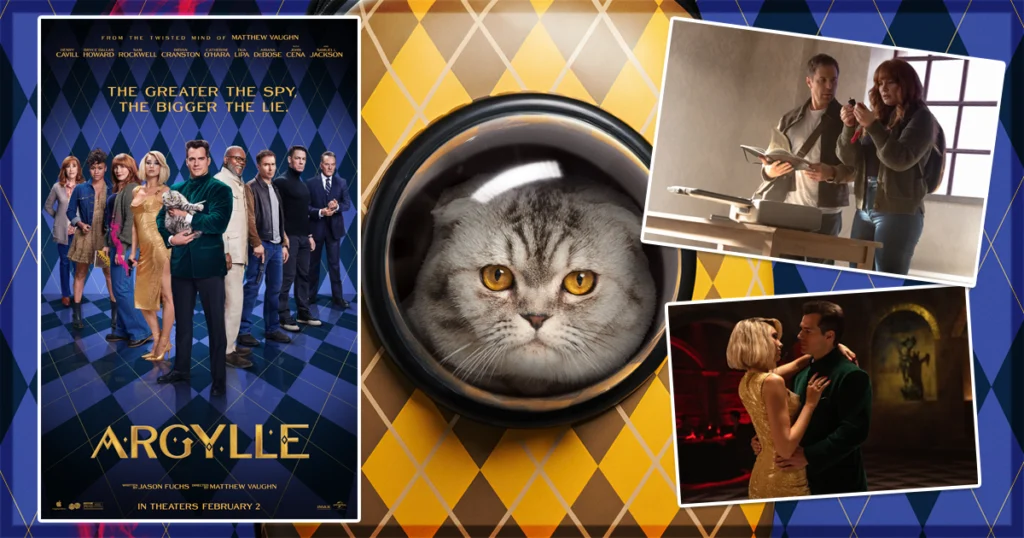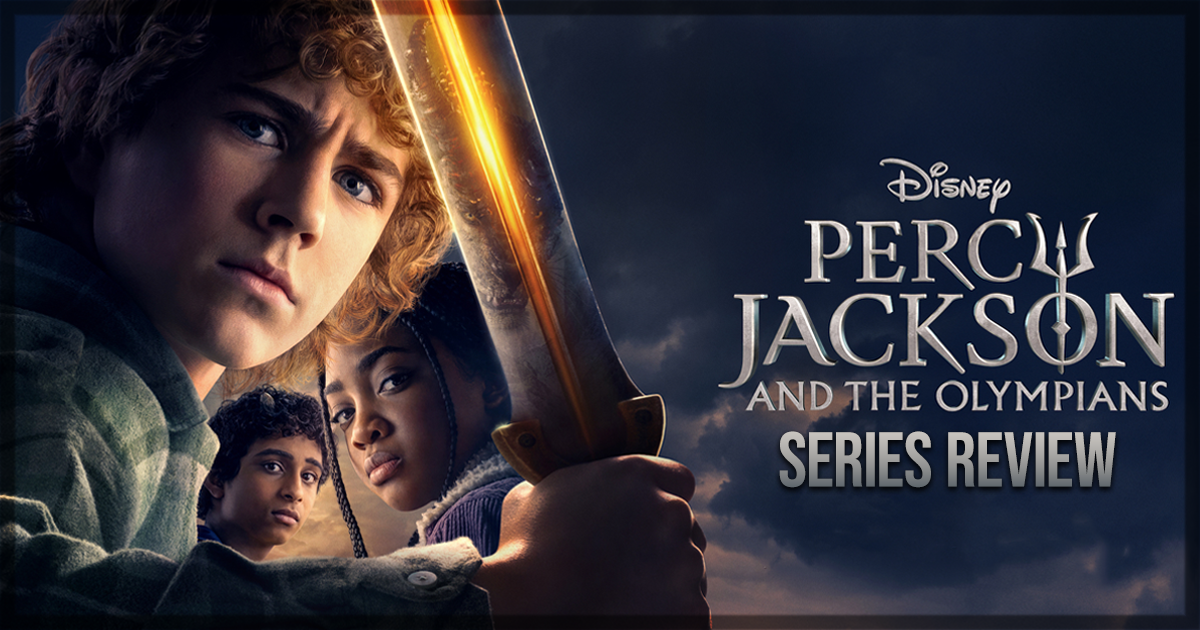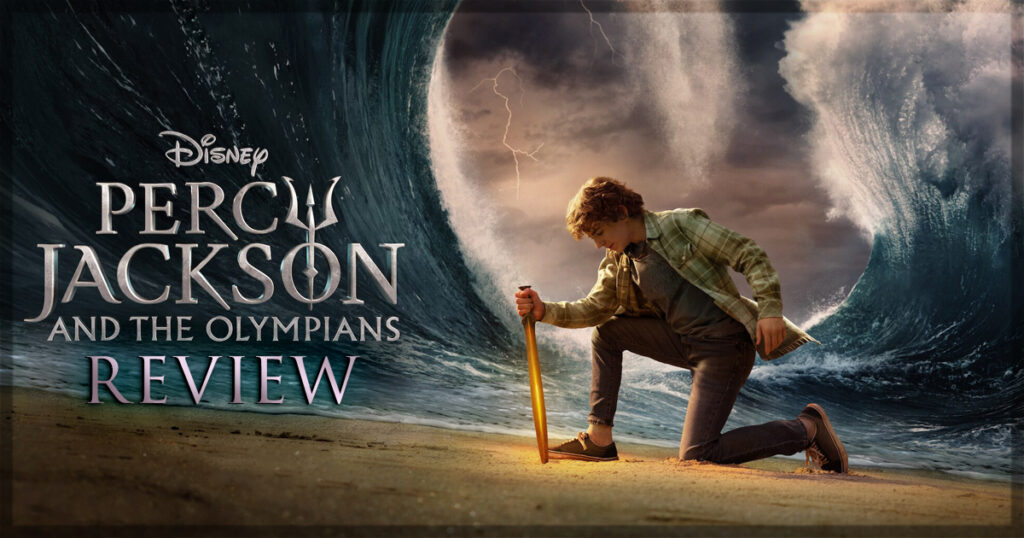All Percy Jackson and the Olympians episodes, starring Walker Scobell, Leah Jeffries, and Aryan Simhadri, are now streaming on Disney+. Connor looks at the merits of one-to-one book adaptations and finds that the series lacks some of the books’ magic.
When the Chris Columbus-directed movie Percy Jackson & The Olympians: The Lightning Thief was released in 2010, young, avid readers like myself who had spent hours escaping into the world of Rick Riordan’s novels about neurodivergent Greek demigods could not have been more excited. Sadly, it disappointed, and the film’s reception from critics and fans alike was colder than the frost kingdom of Boreas.
There were fundamental adaptation errors that upset people. For example, they immediately forgo in-universe logic (the opening scene showed Poseidon as a giant, slowly shrinking to human size as a mortal watches mouth agape), and they cast actors in their 20s as late teenagers when the novels revolve around 11-year-olds. That cast would have been better suited as the stars of a Heroes of Olympus adaptation that one can only dream of happening (seriously, this die-hard Percy Jackson fan needs to see Jason and Hercules, everything Leo, and Percy/ Annabeth crawling through Tartarus!).
Surprisingly, the movie spawned a sequel in 2013 that adapted the second book in the series, Percy Jackson: Sea of Monsters. But with Columbus not returning and the course correction they attempted to the first film’s backlash not quite enough (this basically boiled down the criticisms of Alexandra Daddario’s Annabeth character to not being blonde), the rest of the movies were scrapped and adapting Percy Jackson for the screen form went back to the underworld.
So when they first announced that Rick Riordan’s series of books about Greek demigods fighting monsters and puberty was getting a TV adaptation courtesy of Disney and their expense account, along with Riordan taking an active engagement in the screenplay, you and I would be forgiven for being 30 and getting a bit too excited for a show skewed towards a younger audience.
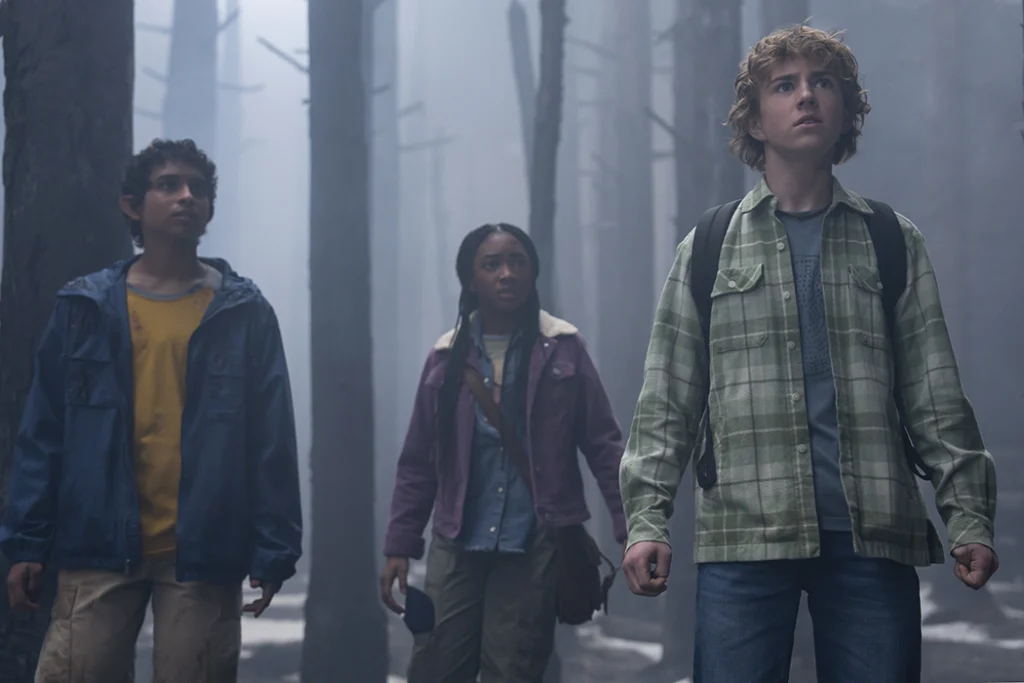
The story of Percy Jackson and the Olympians
There are spoilers ahead for Percy Jackson and the Olympians.
Percy Jackson and the Olympians season one follows the same plot as Riordan’s 2005 novel Percy Jackson and the Lightning Thief. 11-year-old Percy Jackson (Walker Scobell) is thrust into the world of Greek mythology when monsters begin attacking him for supposedly stealing Zeus’s master bolt and for being the illegal son of Poseidon. Illegal because after World War II, the ‘Big Three’ gods (Poseidon, Hades, and Zeus) signed a treaty to not have any more children with mortals (my fellow Heroes of Olympus nerds know exactly why).
After a battle with the infamous half-man-half-bull Minotaur, where his mother (Virginia Kull) perishes, Percy takes refuge at Camp Half Blood, a sanctuary for demigods to train and exist safely away from the monsters that want to purge them from the world. Percy is assigned a quest from the Oracle, along with friends Annabeth (Leah Jeffries) and satyr Grover (Aryan Simhadri), to retrieve Zeus’s bolt to stop the war brewing between Zeus and Poseidon.
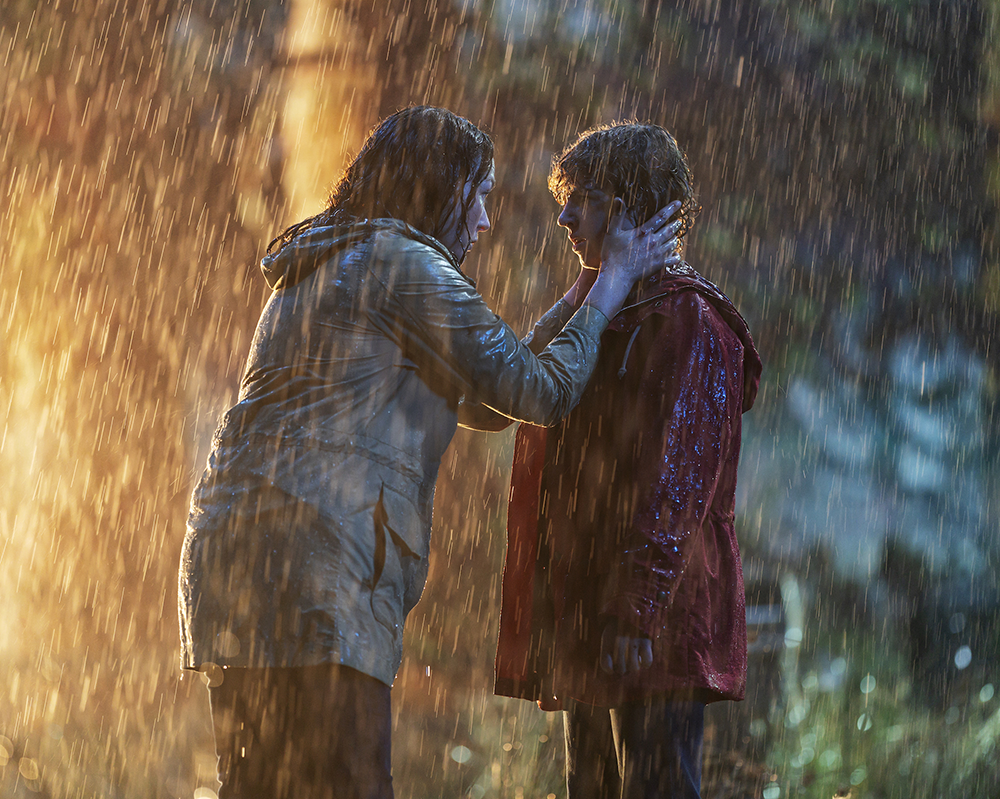
Did I really want a play by play adaptation of the Percy Jackson books?
While there’s a tangential discussion to be had about the impossible expectations that fans put on the adaptations of our favorite novels, separating oneself from the source material is a vital practice that any book reader must do. However, like the twelve labors of Heracles, that proves to be a difficult task when the adaptation is so neat. This Percy Jackson Disney+ adaptation makes it so you don’t have to grin and bear the butchering of the novel, which is what my inner child has always wanted, but after all is said and done and season one has come to a close, I’m left with a lingering question: did I really want a near play-by-play of the book?
If I’m being honest, I don’t think I actually did. What I wanted was a televisual adaptation of the book that made me feel just like the book does. I wanted to be scared by the Chimera reveal and feel anxiety around Alecto/Mrs Dodds (Megan Mullaly) appearing on the bus, and I wanted to be even slightly shocked by Luke’s betrayal. For all its big moments, the series rang too hollow too often. The bits of the series that engaged and excited me throughout, both as a fan of the entire saga and as a critic who wants to be entertained by good art, were those slight changes made from the novel that felt refreshing and dynamic, changes that used the visuality that comes from being a visual form. I was never thrilled, never upset, never scared, and ultimately never transported by the images or the storytelling.
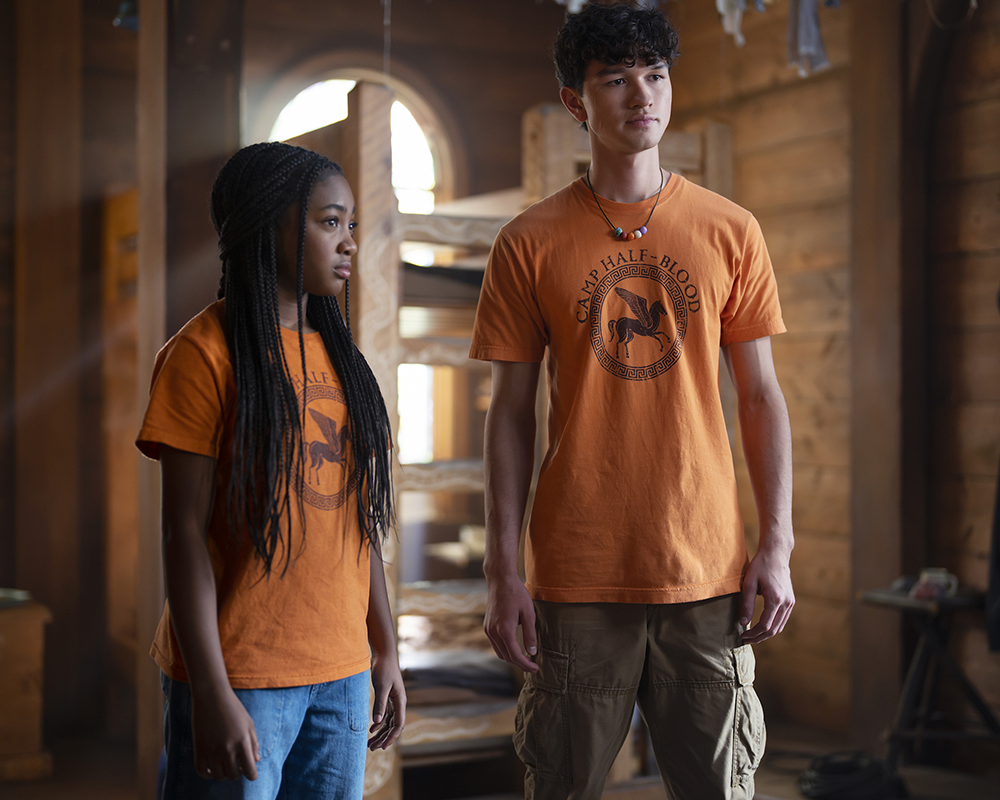
On the merits of a less faithful adaptation of the Percy Jackson books
It’s a factor of changing mediums and a fundamental issue with the creation of art that attempts to visualize a story that, up to that point, had only existed in the imagination of the person reading. The teenager who saw The Lightning Thief, the film that first made them feel betrayed by a piece of art, the film that helped inspire a career in critiquing, only exists in fragments now. The fact that the Lotus Hotel, appearing in Episode Five, “We Take A Zebra To Vegas,” used the name Bianca in the background made me vibrate with excited recognition. But that sequence’s change from Percy noticing the linear discrepancies in the clientele to its use as a reinforcement of the importance in keeping their friendship so tight was exactly what the series needed.
It feels sacrilegious to say that a less faithful adaptation would have been ‘better,’ but one can’t help but think it would have allowed the series to have some personality. It’s far from drab or lifeless, thanks to the talent on screen (Scobell is a good Percy!!).
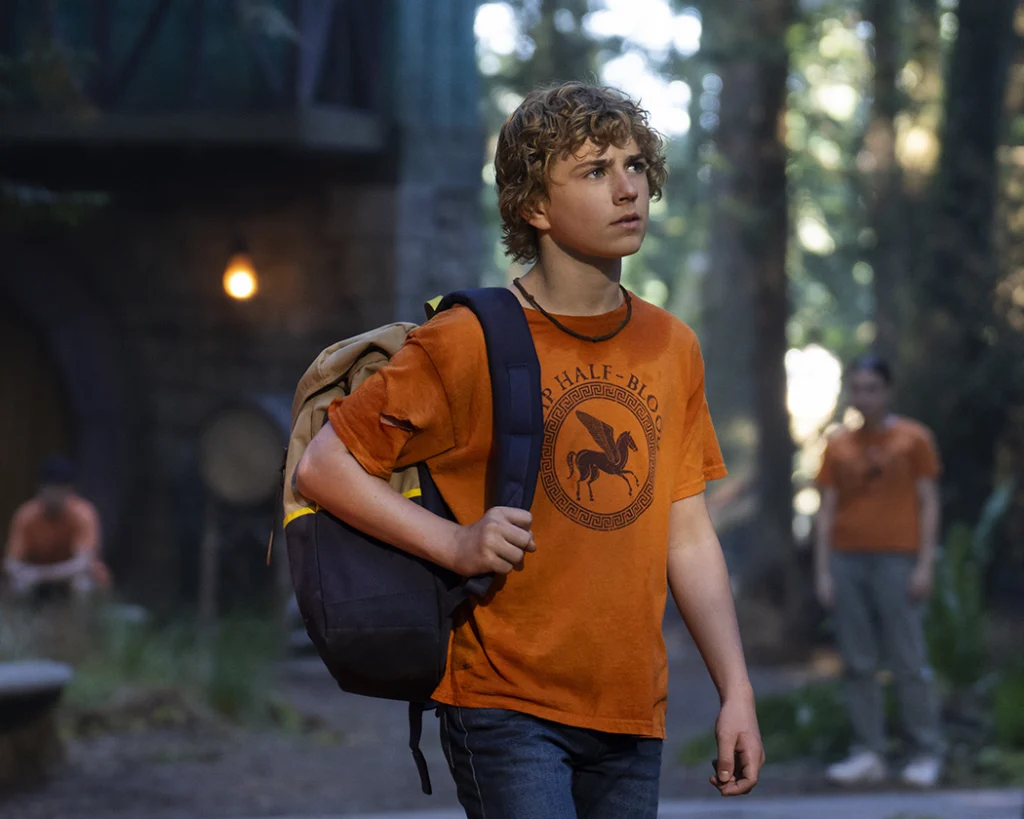
The show is crafted in a murky onyx haze
Still, the writing is too often expository, and the direction and frame composition are as sterile as the CGI backgrounds the directors use. Not just in the typically stale backgrounds is where frustration emerges with the craft behind the show, but the contemporary notion of naturalistic lighting sullies every scene that is in low light, making each action beat indistinguishable in the murky onyx haze, with the caveat that they illuminate the finale with fireworks, almost making the previous instances worth it. It would be unfair to deride the show’s craft without noting how great Camp Half-Blood is, both in production design and as a location, even if it isn’t explored anywhere near enough to make it feel like the safe space that Annabeth called home for five years.
Welcome changes to this adaptation include that of Annabeth and her interactions in Episode Three, ‘We Visit The Garden Gnome Emporium“. The daughter of the wisdom goddess Athena gets several opportunities to highlight exactly how smart she is, such as identifying Medusa (Jessica Parker Kennedy) straight away, giving her and the trio more agency.
The stakes are missing in Percy Jackson and the Olympians
A recurring trope in Riordan’s literary writing is the demigods naively stumbling into danger, and Annabeth’s perceptibility on the danger alleviates that. The unfortunate side effect is that Percy Jackson and the Olympians then had a distinct lack of stakes, as the demigods find themselves briskly solving mythological creatures’ identities too quickly for tension.
The most egregious moment is during Episode 7, “We Find Out The Truth, Sort Of,” when Percy finds himself in a water bed shop, identifying villainous Procrustes immediately. There’s so little narrative grace as it moves over this so quickly, but because Riordan is in the writer’s seat, having Percy face a fellow Poseidon offspring seems to have been a darling that couldn’t be killed. Not to blame Riordan completely since there are writing credits attributed to Jonathan Steinberg, Joe Tracz, Monica Owusu-Breen, Craig Silverstein, and Andrew Miller. It seems to be a typical case of too many cooks.
Leah Sava Jeffries is astounding as Annabeth
As mentioned, Scobell is a great Percy, but the book is in Percy’s first-person, and getting inside that seaweed brain is not one that any of the episode directors are able to help the young actor capture. The cast is all game, including scene-stealer Jason Mantzoukas as Dionysius and the late Lance Reddick as Zeus, but Hades performer Jay Duplass has no gravitas as the exasperated god of the dead and is intrinsic in spoiling Episode 7. Much to the chagrin of that subset of blind-casting-minded fans, the highlight of the entire show is Jeffries as Annabeth, whose emotive performance and capacity to turn on a dime from a playful child to a serious, smart demigod, is astounding.
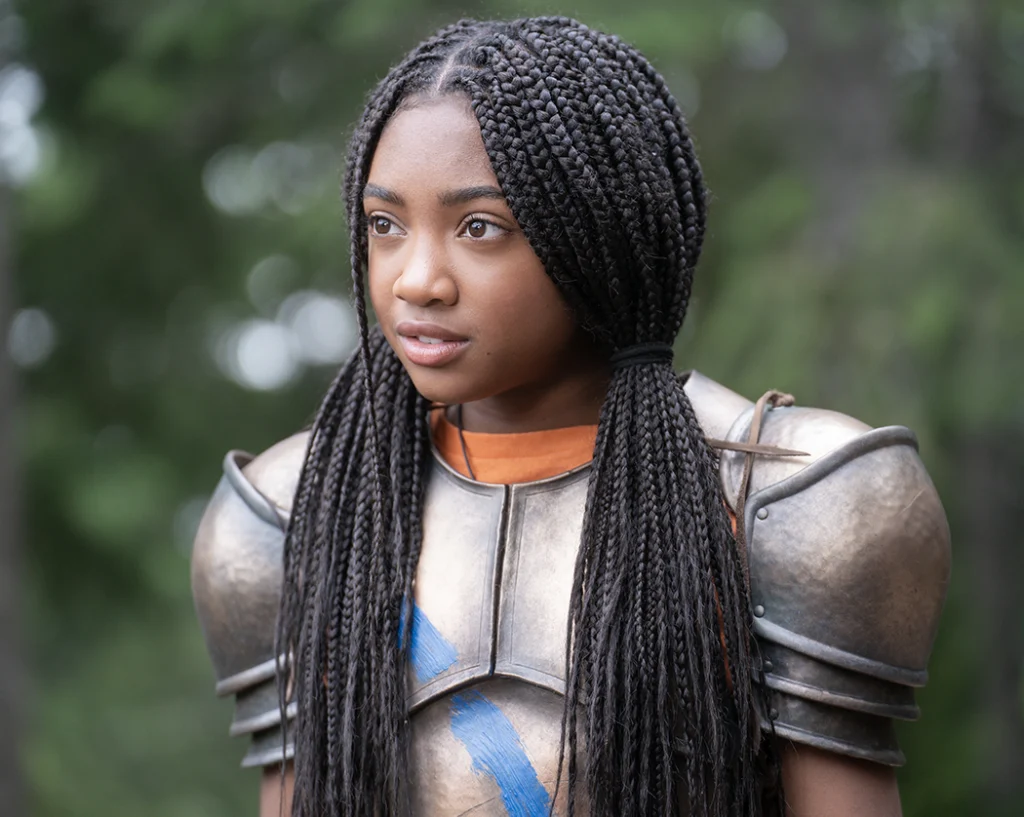
The show is a mixed bag
The entire show is a mixed bag. I’d love to gaslight myself into saying that the show was phenomenal to ensure that season two occurs, but it was just fine? Riordan’s writing on the show reflects some growth in himself as a writer (ironically, his more recent additions to the Percy Jackson universe do not) but for every moment where he relents on lore dumping, he loses personality.
The quirks that make the book such an outlier in the fantasy sphere have all but disappeared. The blue pancakes that appear at the end of the final episode are the only indication of Percy’s obsession with blue food. Also missing is the use of nectar and ambrosia, the food of the gods that heals demigods in small doses, the former of which turns a blue color for Percy and tastes like his mom’s chocolate chip cookies.
These kinds of small factors (that gave the book a sense of identity get lost in the shuffle of making a show accessible to an audience. That they are not required for the show is a bitter pill, but the Percy Jackson show as a whole is like receiving a black-and-white rainbow. If the distinguishing features of something are gone, what is left but a plain reminder of what could be and what you once experienced?
Percy Jackson and the Olympians is now streaming on Disney+.
Have you watched the series yet? What did you think? Did you love the series like Elliott or are you more reserved about it like Connor? Join the conversation with us on X @MoviesWeTexted.
You might also like…
Review: ‘Percy Jackson and the Olympians’ is the best fantasy since Harry Potter
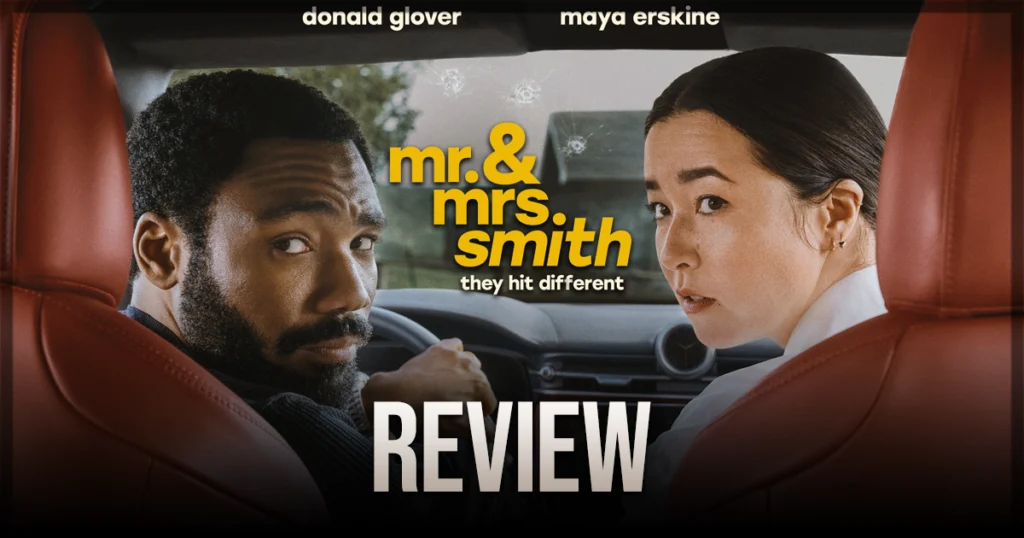
‘Mr. & Mrs. Smith’ Series Review – Spy Romance Reloaded
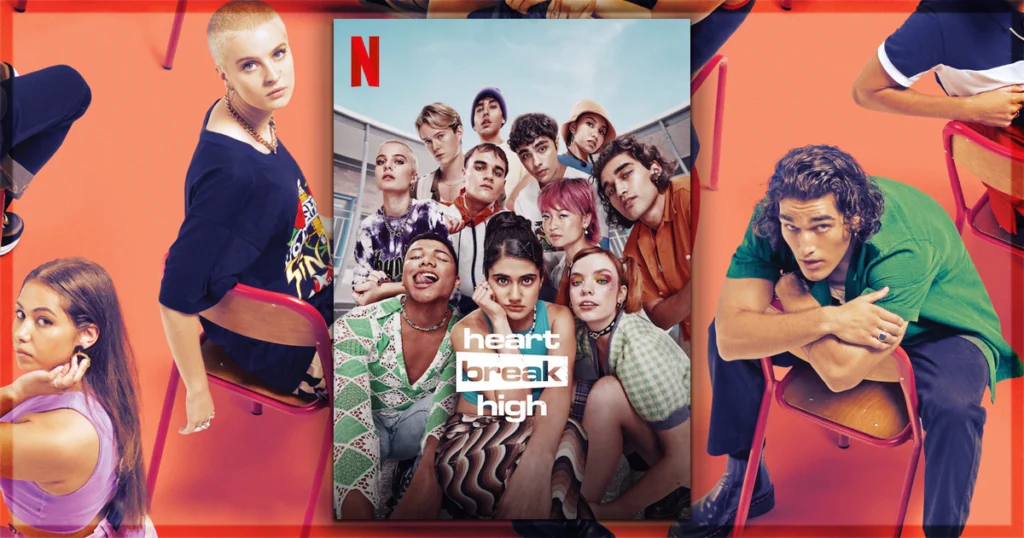
‘Heartbreak High’ Season 1 Review
